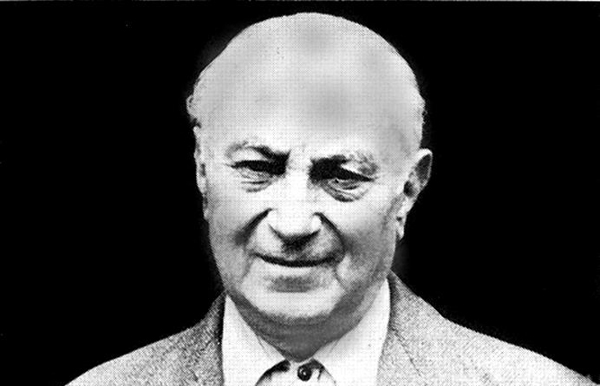
Mohammad Ali Jamalzadeh, the founder of the European-style Persian short-story genre, was born in Isfahan into a middle-class family. The date of his birth is debated; years between 1892 to 1896 are mentioned. At the end of his life, even he himself was not quite sure of the exact year. Thus, Dey 23, 1895 (January 13, 1892) has been traditionally ascribed to his date of birth.
His father, Jamaluddin Hamadani, a famous preacher, was of Sadr large family in Lebanon and his mother Mary, was daughter of Mirza Hassan Bagher, one of the lords of Isfahan.
Jamalzadeh plays the same role in prose as Nima does in Peraian poetry, with the difference that Nima breached the rhyme and prosody based on a stable and old tradition, but what Jamalzadeh did, was innovation in style, which had no previous example before.
He borrowed his prose style from the West, but did not totally surrender to it and wrote stories in a format consistent with the taste and cultural needs of his countrymen.
In Berlin, with a group of Iranian liberals, he published Kaveh magazine. His essays in this magazine focused majorly on politique, economy, culture, literature and Iranology. These essays were in simple style, which characterized most of the writings of the period.
He began his intellectual activities with research and before he embarked on story-writing, wrote many historical, social and political essays. Precious Treasure (Persian: Ganje Shayan), his first book, was published five years before Once Upon a Time (1921). His numerous essays regarding Iran and Russia relationship were also published in Kaveh before Once Upon a Time. Ganje Shayan concentrated on economy, and was depicted as one of the best landmarks focusing Iranian economy by Kaveh.
After kaveh sealed its intellectual activity, Jamalzadeh together with his friends established Farangestan magazine in Berlin and when this magazine was closed down, he published his writings in Iranian newspapers.
“Farsi is Shakar” (“Pesian is Sugar”) is his first short story in a new and simple style and this story and other short stories imply his own unique artistic method, which was understandable for everyone.
Once Upon a Time marked the beginning of Jamalzadeh’ career as a storyteller, and laid the foundation of modern Persian prose and pointed the literary direction for the next generation of Iranian writers.
Modern prose owes much to the small volume of short stories of this collection of short stories. These stories became a landmark in the development of realistic prose narrative, which had no precedent in the Persian tradition.
Jamalzadeh holds a place of singular distinction in contemporary Persian literature as one of the innovators of the modern literary language, and the first to introduce the techniques of European short-story writing to Iran
In general, there appears a sharp distinction between the early stories written by Jamalzadeh and his later compositions. Whereas conciseness, novelty of form, originality of ideas and a biting sense of humor mark the earlier writings, his later works show a tendency towards sage remarks and mystical and philosophical speculations, frequent use of classical poetry and, at times, lack of shape and order.
Jamalzadeh’s pre-eminence is due mainly to his timely call for regeneration of Persian prose. One of the main themes that recurs in his writings is the dilemma of Western-educated Iranians when they return home. Numerous characters of this type appear in his works, all in different situations and with different potentialities, but none of them is able to tolerate the prevailing conditions, accommodate himself to the requirements of his milieu, or even feel at home in his own country.
In 1933 he went to Geneva and stayed there till death. Jamalzadeh passed away on November 8, 1997 and against his will to be buried next to Zayandeh Rood, he is buried beside Lake Léman.
Water tastes the same everywher, doesn’t it?

Leave a Reply